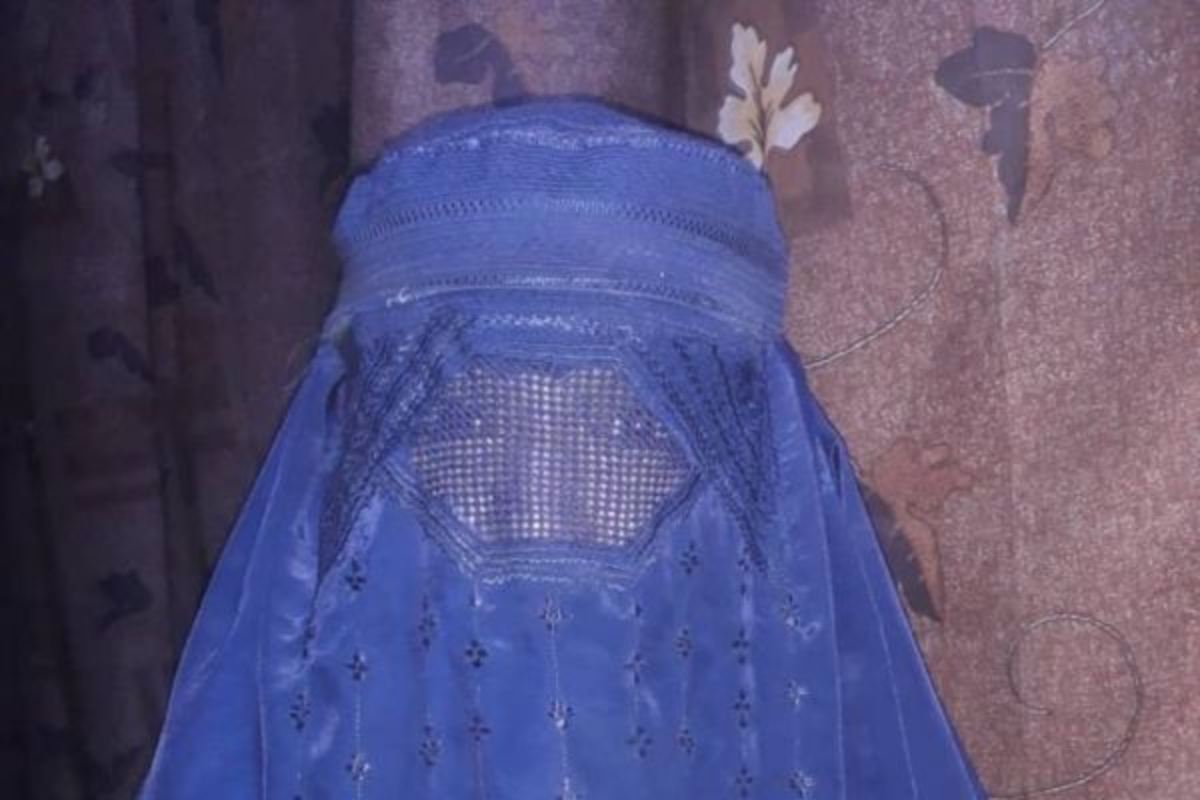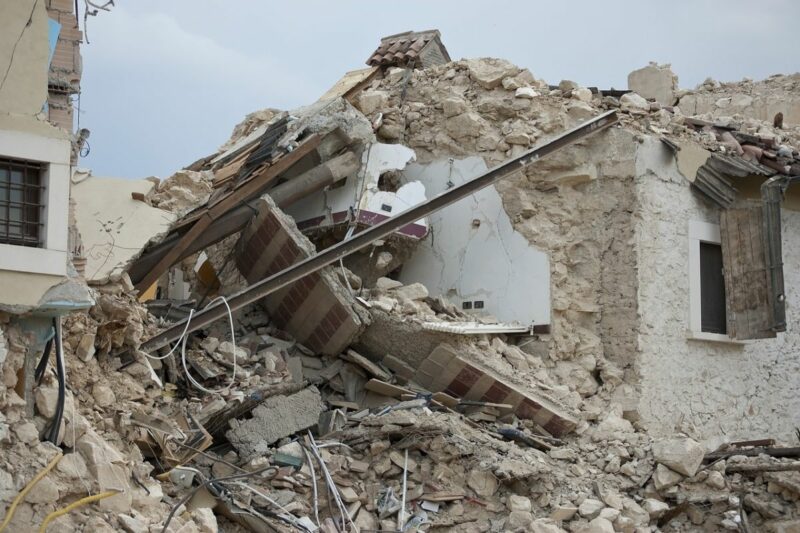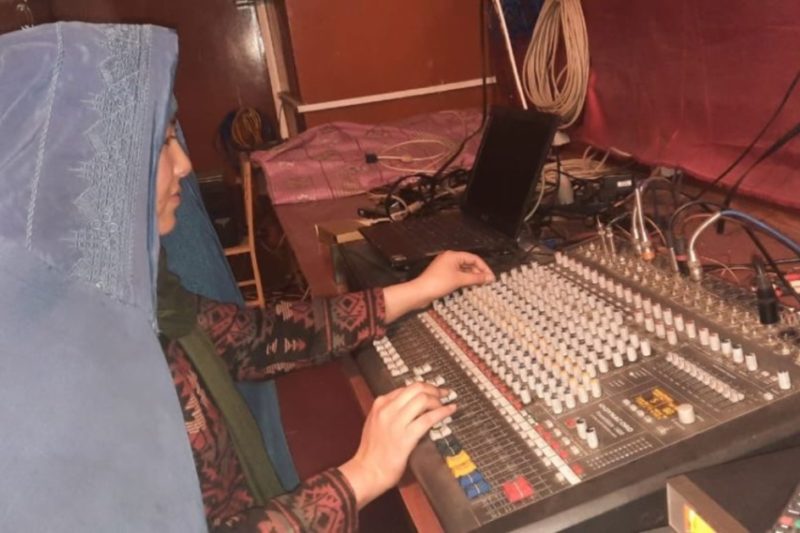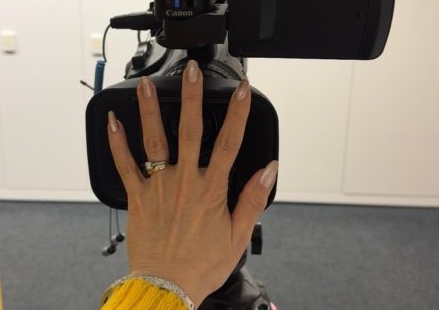Journalism in Afghanistan : « A Taliban forced me to marry him ! » (5/6)

Wahida fled Afghanistan to escape forced marriage. She worked for the government before the Taliban takeover. In 2022, while collecting her salary, a Taliban fighter demanded she marry him. He threatened to kill her and her brother if she refused.
This continuing exclusive series of interviews with female journalists from Afghanistan shows that these women face not only significant challenges in their workplaces but also in their personal lives. They struggle with issues such as unemployment, severe security threats, forced marriages, and the general suppression of their basic rights. These women are fighting not only for their fundamental rights but also for survival. They are fighting to stay alive.
In this section, Latitudes interviews two of these female journalists who are currently living in Pakistan. She had to flee Afghanistan following many threats, especially the threat of being forced into marriage with a Taliban member aged over 60. In this interview, she reveals more about girls in Afghanistan.
In the face of tyranny, censorship, and personal danger, two women from Afghanistan continue to defy the odds. Sabira Nikzad and Wahida Soleiman (a pseudonym) may be miles apart in their personal histories, but both share an unwavering commitment to journalism, justice, and amplifying the voices of Afghan women silenced by the Taliban. Their journeys from provincial newsrooms to exile in Pakistan reveal the high price of truth-telling in today’s Afghanistan.
Starting a journalism career
Wahida Soleiman (a pseudonym) was one of the behind-the-scenes journalists at a television station in Afghanistan, where she worked for two years. She is 24 years old and single and lived with her mother, older brother, and their families in Afghanistan until two years ago. She now resides in Islamabad, Pakistan, with her mother and three nieces, all of them girls. Wahida completed her university education in law and political science and also trained for one and a half years in journalism. She was in the process of completing her master’s degree in international relations when the Afghanistan government fell, and the Taliban took over, preventing her from receiving her master’s degree.
From 2016 to 2018, Wahida worked as a journalist in the news department at a TV station in Mazar-e-Sharif. During this time, she was also involved in various social and cultural activities and was dedicated to promoting the rights of Afghanistan women and girls. She says: « Journalism in Afghanistan, especially in the remote provinces, is not easy. But my primary goal was to raise awareness among women and girls about their rights and freedoms. »
« I faced many threats and negative societal attitudes, but my family always supported me. »
Wahida recalls how she began her career in journalism before the Taliban seized power: « I entered this profession with the support and encouragement of my family. Nonetheless, I also faced many threats and negative societal attitudes, but my family always supported me. »
However, her professional life drastically changed after the Taliban took control of Afghanistan. She explains: « When the Taliban took power, life for women, especially journalists, became hell. Working in a democratic environment and then under the rule of the harsh Taliban law is entirely different. The Taliban have taken away the fundamental freedoms of the people, and this has made life very dangerous for us. »
Wahida talks about her part-time work with the government, and also her studies, and the threats she faced after the Taliban’s takeover of Afghanistan: « I was repeatedly threatened by the Taliban to stop my journalistic work. These threats made me decide to leave the country, but that is not the only reason. » She adds that emigrating from Afghanistan, especially to Pakistan, was not an easy task, but she and her family eventually managed to flee the country.
The reason for fleeing Afghanistan
Wahida identifies forced marriage as another significant reason for her fleeing Afghanistan. She explains that before the fall of the government, she was working in a government department. But after the Taliban took control, she spent a time at home.
In 2022, when she received a phone call to go to the office and receive her salary, the problem started. She said: « When I went to my workplace with my brother to receive my salary, they deceitfully asked me to marry one of the Taliban fighters. That moment is something I will never forget. The Taliban man threatened my brother and me that if I refused, they would kill us all. »
« After hearing his request, my brother and I were shocked. I cried under my chadari, trembling with fear. I couldn’t say anything. »
Wahida explains how, even though she was wearing a chadari and her body was covered, she was terrified by the man’s cruel and threatening behavior. « After hearing his request, my brother and I were shocked. I cried under my chadari, trembling with fear. I couldn’t say anything. After a few seconds of silence, my brother calmly told him that I was engaged and that it was against Sharia law to marry a woman who was already betrothed or promised to someone else. My brother tried to speak to him about Islam, but the Taliban man interrupted, saying they already knew about Sharia and didn’t need an explanation. At that moment, his phone rang, and my brother and I quickly ran out of the office, heading straight home. »
Wahida and her three nieces, who are teenage girls, fled Kabul and eventually reached Islamabad to escape the forced marriage threats from the Taliban. However, life in Pakistan is also very difficult. They continue to live in fear and anxiety and wish to leave for another country.
Challenges of living in Pakistan
After fleeing Afghanistan, Wahida arrived in Pakistan. However, life in Pakistan was no easier for her and her family. She says, « Living in Pakistan still comes with many challenges. The economic and social conditions for refugees from Afghanistan are difficult, and there are ongoing security threats. Still, life in Pakistan is somewhat better than in Afghanistan. But we are always worried about the possibility of being forcibly deported. »
« Life in Pakistan is far from easy. Especially for Afghan women. »
Wahida talks about her concerns in Pakistan: « We are constantly worried that one day we will be forced to leave here. Life in Pakistan is far from easy. Especially for Afghan women who are searching for security and their rights, life here is challenging. »
« The first and biggest challenge for us as female journalists is access to information. »
As a female journalist in Afghanistan, Wahida faced many challenges. She says: « The first and biggest challenge for us as female journalists is access to information and the ability to work freely. Under the current conditions in Afghanistan, it is difficult for women to be in public places. We are forced to wear specific clothing like the burqa or chador, and we face constant threats of violence. Now women are not allowed to talk in public, so what does it mean to you? It means staying at home! The Taliban strictly control the media, and any news coverage that contradicts their policies is met with suppression or even the arrest of journalists. »
From a Remote Village to the World of Journalism
Sabira Nikzad was born in 1994 in a remote village in Punjab district of Bamyan province. She completed her schooling there and passed the national university entrance exam in 2011. She was admitted to the Teacher Training Faculty at Bamyan University.
After graduation, her desire to further her education led her to study law at a private university. Eventually, she moved to Kabul to pursue a master’s degree in International Law. But just before her final exams, the Taliban regained control of Afghanistan, and due to rising insecurity, she was unable to attend.
“Since I was a child, I used to read old, worn-out magazines aloud, pretending I was a news anchor. Eventually, that childhood dream became my career.”
Facing Threats for Choosing Journalism
Sabira was fortunate to have her immediate family’s support, but extended relatives and local clerics were not as accepting. She was verbally harassed and even threatened with acid attacks.
“When a society devalues freedom of speech, where even a woman’s voice is considered shameful, working as a female journalist becomes not only difficult it becomes nearly impossible.”
The Day Kabul Fell
Sabira was visiting her family in Bamyan when the government of Afghanistan collapsed in August 2021. Bamyan and Kabul fell to the Taliban on the same day. The next day, she received several suspicious and anonymous phone calls.
“I remember clearly my brother called at dusk and told me a group of men on motorcycles had come to our house asking for me by name. They even demanded my phone number from my family.”
Realizing the danger, she changed her SIM card, borrowed a burqa, and fled to Kabul, where she lived under an alias in a private hostel. With the help of a foreign female journalist, she eventually escaped to Pakistan, where she has lived in legal and emotional limbo for the past three years.
The Pain of Witnessing Abuse from Afar
Though Sabira hasn’t personally worked under the Taliban regime, she has heard firsthand accounts from her fellow journalists.
“Women who spoke out against gender discrimination and the erasure of women’s rights were detained, imprisoned, and tortured, some even sexually assaulted in Taliban prisons. These aren’t rumors. They’re real. They happened.”
Life in Exile: Work Without Stability
Over the past three years, Sabira has worked with several media outlets, often unpaid or for meager salaries of 20,000 to 30,000 Pakistani rupees, a sum she says is not even enough to cover basic expenses.
“For the past month, I’ve been unemployed. Before that, even while working, I was only 50% satisfied with the conditions.”
Some Freedom, But No Safety
She currently faces no editorial restrictions in choosing interviewees or story topics. However, security concerns remain a daily reality.
“I had to flee Afghanistan because my life was in danger. My family is still in Bamyan, living in constant fear.”
Although she no longer lives in Afghanistan, Sabira understands all too well what journalism under the Taliban looks like.
“When women are banned from public spaces, silenced, and denied their right to work or study, journalism becomes impossible. All we want is to be heard. We want to keep telling our stories even in exile.”
Request for international help
Sabira, who has been living in Pakistan for over a year, calls on the international community and European countries to pay special attention to the challenges faced by refugees in Pakistan. She says: « We are living in extremely difficult conditions. From a security, social, and economic perspective, we are facing serious risks. These problems include a lack of access to basic rights, the absence of proper economic opportunities, security threats, and difficult living conditions. »
She concludes: « I am a girl from Afghanistan living under these harsh conditions. My only hope is to find a better life in the future. I hope the international community will pay attention to our problems and help us to start a new life. »




